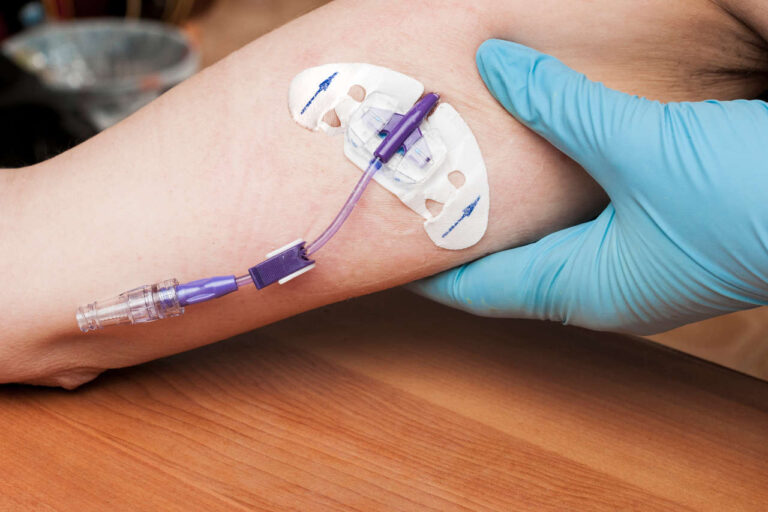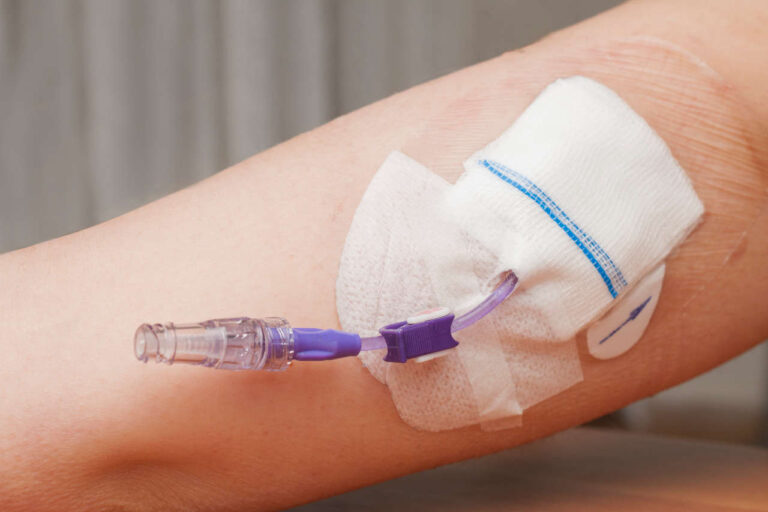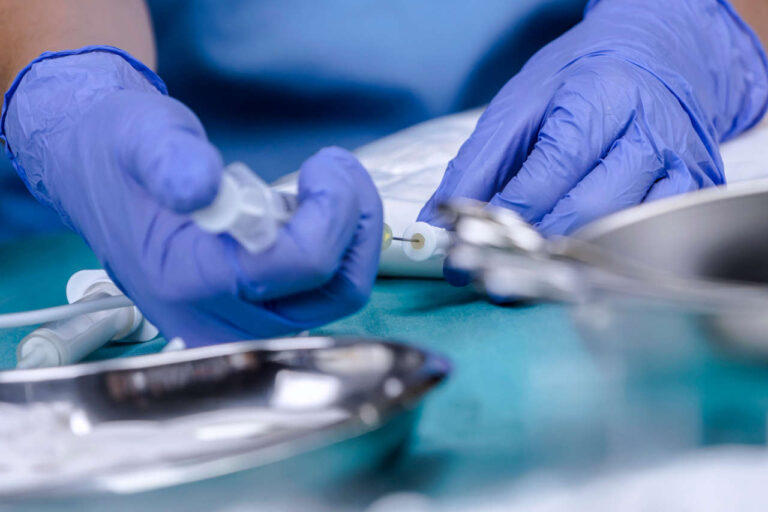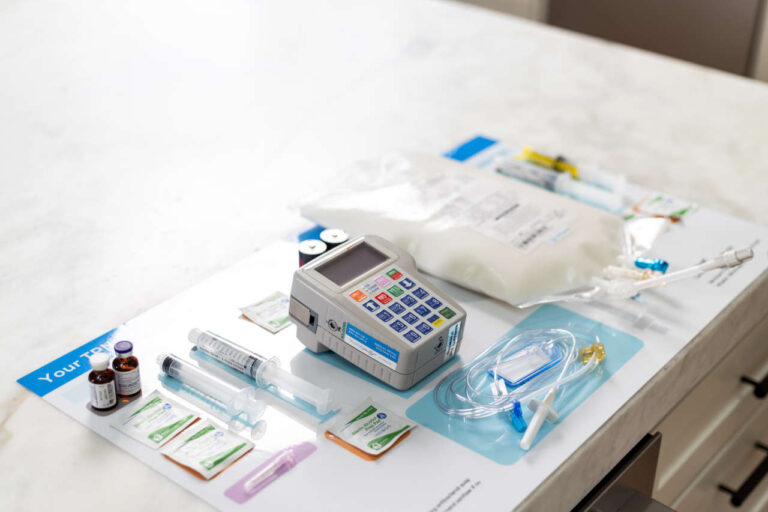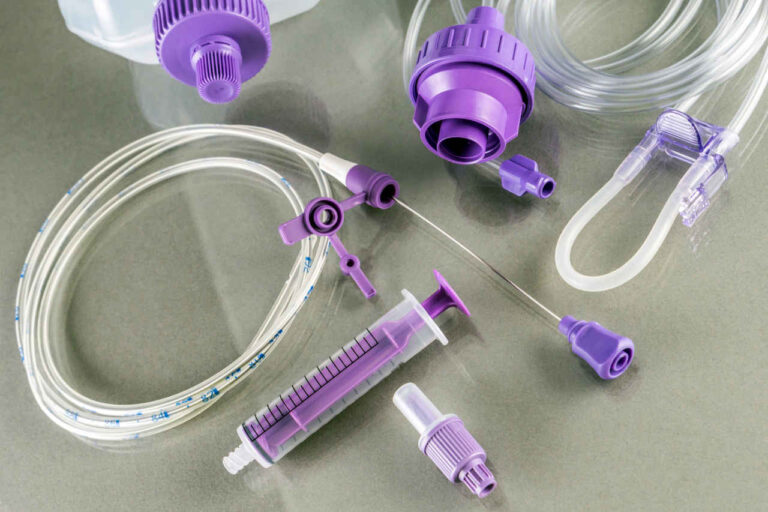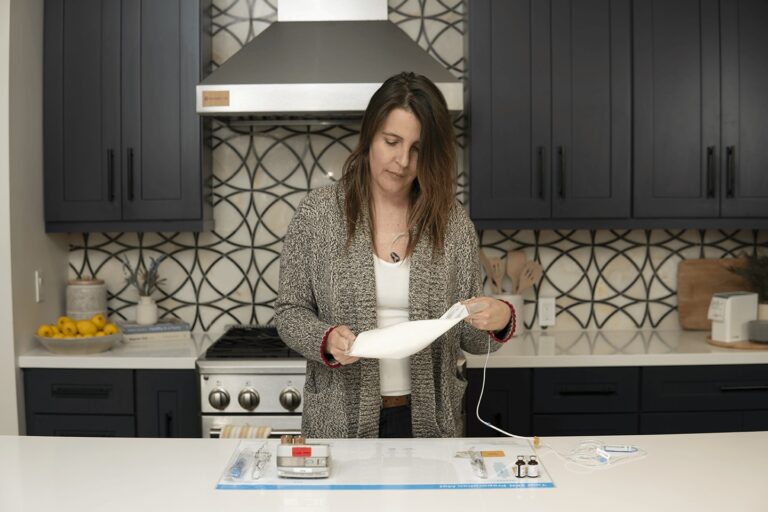
TPN, also known as total parenteral nutrition, is an intravenous administration of nutrition to patients, bypassing the gastrointestinal tract (GIT).
Ask About TPN Home Infusion
As TPN is given intravenously, GIT side effects such as diarrhea or stomach disturbances rarely occur. But if the drug is administered incorrectly or without following necessary precautions or proper injection techniques, it can lead to infections at the injection site and other IV-related complications.
In this article, we will discuss TPN side effects and complications in detail and how to minimize them.
Side Effects of Total Parenteral Nutrition – Are They Serious?
All side effects related to IV injections, such as TPN, can be serious and require immediate medical attention, regardless of whether they are common or rare. This is because the medication goes directly into the bloodstream, and even minor problems can be life-threatening.
TPN has a high sugar content, which is a perfect growth environment for bacteria. Hence, if the solution, tubing, or dressing gets contaminated or mishandled during or before administration, it can lead to bloodstream infection. Infections can cause fever, chills, increased blood glucose levels, or a high WBC count.
The side effects or complications of TPN can be divided into three categories:
- Catheter-related problems (problems at the injection site)
- Metabolic problems (hypoglycemia, hyperglycemia, hepatic dysfunction, metabolic bone disease, electrolyte imbalance, or refeeding syndrome)
- Sepsis
Common Side Effects of TPN:
The common side effects of TPN include:
- Nausea or vomiting
- Increased urination
- Swelling of the hands, feet, or legs
- Stomach pain
- Tingling in the hands or feet
- Fever or chills
- Mouth sores
- Skin changes
- Rapid weight loss or gain
- Muscle weakness
Severe Side Effects or Complications of TPN:
The severe side effects of TPN are mostly catheter-related, and they can be minimized by maintaining clean tubing, catheter, and needles and by following proper injection techniques during TPN administration. Non-compliance of patients can also lead to catheter-related complications.
Catheter-related TPN complications include:
- Thrombosis (blood clots)
- Swelling, redness, and pain at the injection site
- Phlebitis (inflammation of the vein)
- Infusion pump malfunctions
- Pneumothorax (Gas or air between the lungs and chest wall)
- Sepsis
- Hemothorax (Blood between the lungs and chest wall)
Other risks or complications include:
- Changes in heartbeat
- Bone disease (This can be bone fractures, bone pain, or osteopenia.)
- Liver disease
- Hypoglycemia or hyperglycemia
- Electrolyte imbalance
AmeriPharma™ Specialty Care
Total Parenteral Nutrition | Leader In TPN AssistanceHow To Prevent or Minimize TPN Side Effects and Complications
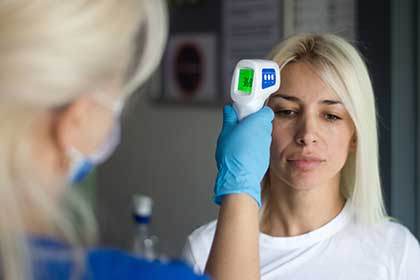
There are many ways to prevent TPN side effects. To prevent side effects:
- Follow aseptic injection techniques.
- Closely monitor the patient’s condition during TPN administration. It is crucial for both patients and their caretakers to look for signs of infections at the injection site or other complications while receiving TPN.
- Occasionally monitor the patient’s blood glucose levels, weight, and body temperature while on TPN therapy.
- Do not stop TPN abruptly, as it can cause hypoglycemia.
- Administer TPN infusion at a slow and constant rate. If administered too rapidly, it can cause vomiting, nausea, or elevated body temperature.
- To prevent catheter embolization, remove the needle and catheter simultaneously and ensure the catheter is intact when removed.
- Because bone or liver diseases can occur from long-term TPN use, monitor lab values during long-term therapy. This includes checking liver function tests, blood levels of vitamin D and calcium, and detecting phosphorus levels in the urine.
Conclusion
TPN’s side effects can be serious. Hence, TPN must be administered and monitored by an experienced professional or trained person if given at home. Moreover, to avoid any adverse effects or complications, it is necessary to monitor the injection site and overall patient’s condition, especially during the first 24 – 48 hours of TPN therapy.
REFERENCES:
- https://www.verywellhealth.com/total-parenteral-nutrition-uses-methods-side-effects-5184974
- https://medlineplus.gov/ency/article/007239.htm
- https://www.slideshare.net/ChartwellPA/3-complications-of-parenteral-nutrition
- https://stanfordhealthcare.org/medical-treatments/t/total-parenteral-nutrition-therapy/complications.html
- https://www.healthline.com/health/parenteral-nutrition#side-effects

